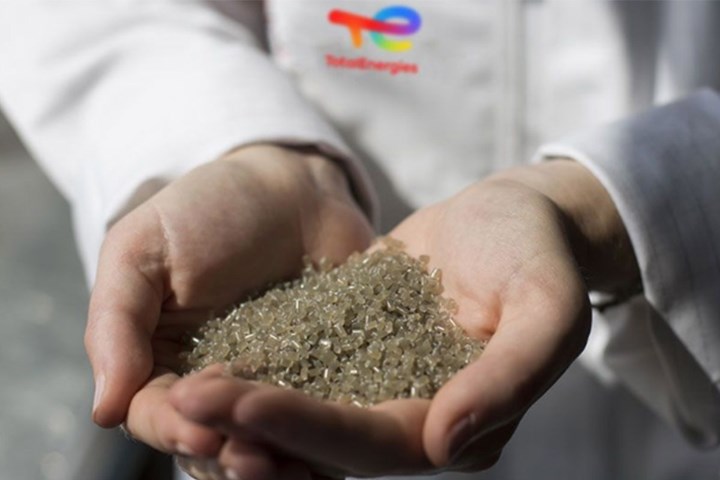Total Energies Converts Feedstocks From Plastic Waste Into New Polymer at LaPorte Plant
Pyrolysis product from New Hope Energy was used to create monomer at BASF-Total Energies facility in Port Arthur, then polymerized to PP at Laporte
has converted feedstock from plastic waste into new polymer at its polypropylene plant in La Porte, Texas. According to the company, the La Porte plant will produce sustainably certified polymers suitable for a wide range of applications, including food grade packaging.
The petrochemical feedstock was provided by 's ISCC+ certified advanced recycling facility in Tyler, Texas. The feedstock was converted into monomer at the BASF Total Energies Petrochemicals (BTP) facility — a 60/40 joint venture between BASF and TotalEnergies based in Port Arthur, Texas — before being transformed into circular polymers at TotalEnergies' polypropylene plant in La Porte. Both the La Porte and BTP facilities received their ISCC+ certification in 2022.

Total Energies is using feedstock from New Hope Energy’s pyrolysis operations, which is used to make monomer material at Port Arthur and polymerized at the Tyler facility. Source: Total Energies
Total Energies and New Hope Energy have signed a multiyear agreement, under which New Hope Energy will supply Total Energies with petrochemical feedstock made from plastics to produce recycled polymers. New Hope Energy uses a patented pyrolysis technology, developed in partnership with Lummus Technology, to process and convert plastic waste into pyrolysis oil, cracked gas and pitch.
New Hope Energy says it anticipates expanding the Tyler facility to a capacity of more than 420 metric ton per day (MPTD) of waste plastic by 2026. Total Energies has stated an ambition to produce one million tons of circular polymer by 2030.
“We are excited to partner with Total Energies in our mutual effort to transform plastic for a cleaner world,” says Rusty Combs, New Hope Energy CEO. “This supply agreement is an important step toward achieving New Hope’s goal of creating pyrolysis projects at a scale that will materially improve the nation's plastic recycling performance.”
Related Content
-
Prices Drop for All Five Commodity Resins
While PE price reductions were not as apparent, they too were following the year-end price trajectory of PP, PS, PVC and PET.
-
The Fundamentals of Polyethylene – Part 2: Density and Molecular Weight
PE properties can be adjusted either by changing the molecular weight or by altering the density. While this increases the possible combinations of properties, it also requires that the specification for the material be precise.
-
Prices Up for PE, PP, PS, Flat for PVC, PET
Trajectory is generally flat-to-down for all commodity resins.





